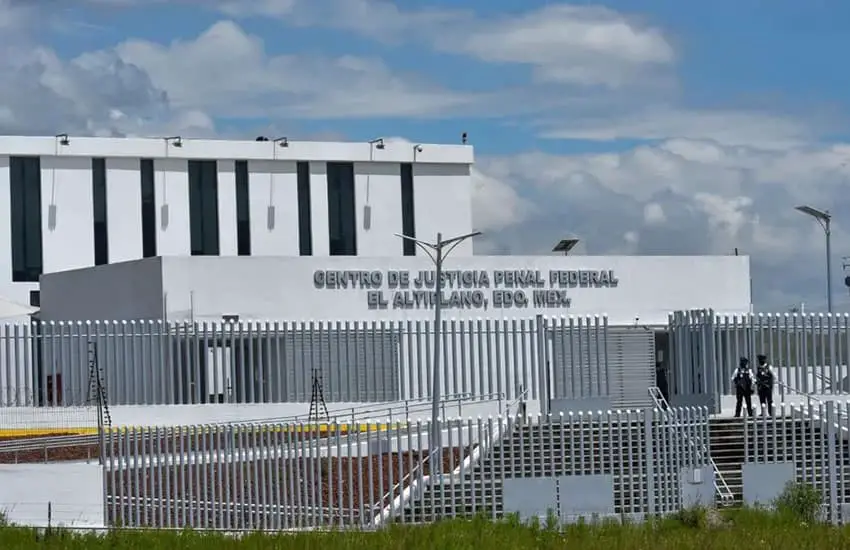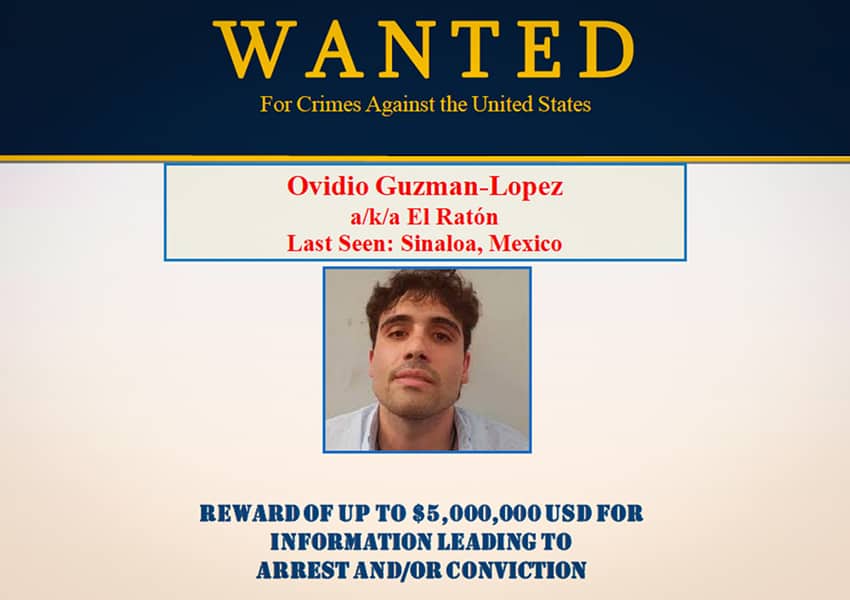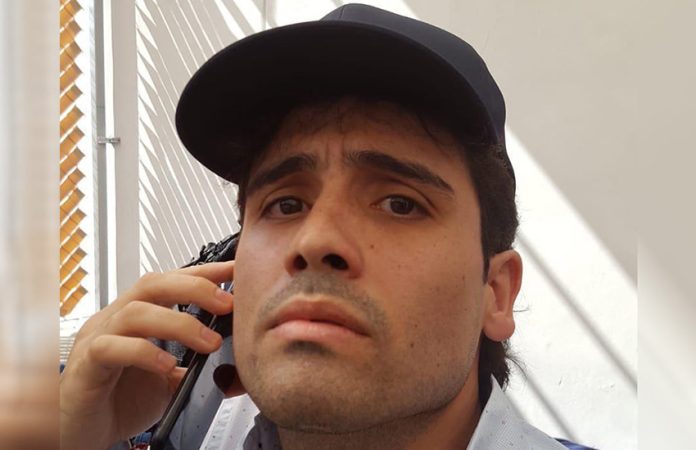On Wednesday a federal judge halted extradition proceedings against Ovidio Guzmán for the second time.
Guzmán, the son of the incarcerated Sinaloa Cartel founder Joaquín “El Chapo” Guzmán and the leader of the “Los Chapitos” faction of the cartel, was arrested on Jan. 5 in the Culiacán, Sinaloa, municipality.
Among other crimes, Ovidio Guzmán is accused of leading one of the primary operations in Mexico producing the synthetic drug fentanyl.

A Mexico City federal judge first halted Guzmán’s extradition to the U.S. on Jan. 6. Guzmán faces criminal proceedings in both the U.S. and Mexico.
During Wednesday’s hearing in México state, the judge issued the extradition suspension as a precautionary measure to prevent Guzmán’s immediate transfer to U.S. custody until the official extradition hearing happens on Jan. 24. The judge made clear that the suspension was issued so that Guzmán “is not extradited and remains at the disposal of the court.”
Following the first suspension order, Foreign Affairs Minister Marcelo Ebrard said authorities had to comply with the required legal formalities and follow Mexican due process before extradition can occur.
Guzmán is currently in custody at the Federal Center for Social Readaption No. 1 (more popularly known as “El Altiplano”) in Almoloya, México state. It has held in custody a long list of notable criminals, including Guadalajara Cartel leaders Rafael Caro Quintero and Miguel Ángel Félix Gallardo, as well as Guzmán’s own father, who notoriously escaped the prison via an improvised underground tunnel.
Judicial opinions issued in the extradition process are not binding; they only serve to provide perspective on whether or not the detained individual meets extradition requirements. The Foreign Affairs Ministry (SRE) makes the final determination.
The United States government offered a U.S. $5 million reward for information leading to Ovidio Guzmán’s capture. The arrest came only a day before U.S. President Joe Biden visited Mexico for the North American Leaders’ Summit which triggered widespread speculation that the arrest was made for Biden’s benefit or at his request. However, Ebrard has denied that the arrest was related to the visit.

The U.S. has had an outstanding extradition request for Guzmán since September 2019. United States authorities want him to stand trial for cocaine, methamphetamine and marijuana trafficking charges.
Guzmán was first arrested in October 2019, but the ensuing retributive violence unleashed by criminal gangs that immediately followed in Culiacán, Sinaloa — Guzmán’s home base — (an event known as the “Culiacanazo”) led President López Obrador to release him unconditionally.
However, his liberation did not mean freedom from future pursuit by authorities: Mexico’s Attorney General’s Office (FGR) has charged Guzmán with three crimes in relation to his most recent arrest (now called the “Second Culiacanazo”), including homicide, the possession of military weapons and organized crime, Federal Security Minister Rosa Icela Rodríguez said during a press conference on Wednesday. Guzmán’s capture resulted in clashes with security forces, leaving 29 dead.
Former officials quoted in Vice speculate that the extradition process could be lengthy, with the possibility that it might not occur at all.
